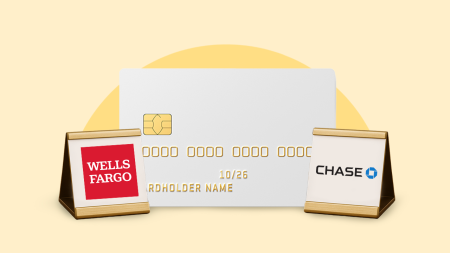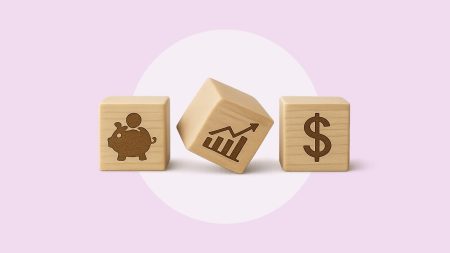Key takeaways
- Improving your finances before applying for a mortgage gives you the best shot at getting good terms.
- In evaluating your creditworthiness, lenders consider your credit score, income and other assets, debts, the amount of your debts in relation to your income, and your employment history.
- Improving your credit score, reducing your debt load and ramping up your savings can boost your financial profile.
As a first-time homebuyer, you might not have a substantial income or savings to work with. That doesn’t mean you won’t qualify for a mortgage, however. There are many ways you can prepare your finances to be a more competitive mortgage applicant. Here are three ways to get your finances in shape before submitting a mortgage application.
What financial elements are considered in the mortgage process?
How do you know you’re really ready for a mortgage? There are some signs that might point to yes, according to Freddie Mac. These include:
- Your credit score: One of the biggest determining factors for mortgage approval is credit score. A credit score of 661 or higher places you in the creditworthy category, according to Freddie Mac. If your score is between 600 and 660, you could be close to being ready for a mortgage but not quite there yet. If your score is 599 or lower, you’re likely not ready to take on the additional debt.
- Your debt-to-income (DTI) ratio: DTI is also significant, and there are two measures. The front-end ratio, which compares your projected monthly mortgage obligation to your monthly income, should be, ideally, 25 percent or less. The back-end ratio — your overall debt, including auto loans and student loans, can be higher, but most lenders like it to be no more than 36 percent, with 43 percent as the max.
- No bankruptcies/foreclosures: Your credit profile should be free of these blemishes for at least seven years.
- Timely debt payments: Your credit report should also be free of debt payments that are 90 days or more overdue.
Bankrate’s take:
This isn’t to say you won’t get approved for a mortgage if you have a lower credit score or don’t meet all of the other criteria — you just might be stretching yourself too thin or unable to achieve other financial goals.
How to improve your finances before getting a mortgage
When you apply for a home loan, the mortgage lender reviews all aspects of your credit and financial profile to assess your risk as a borrower. This includes your credit history and score, employment history, income, debt and savings or other assets.
The strength of these factors helps the lender decide whether to approve or deny you for a loan and for how much. Below are three tips to boost your chances of getting approved for the amount you want.
1. Check your credit
Well before you apply for a mortgage, it’s a good idea to review your credit reports and scores to ensure all information is up-to-date and accurate. You can obtain your credit reports (which don’t include your scores) for free once a year from each of the three credit bureaus (Equifax, Experian and TransUnion) through AnnualCreditReport.com.
When reviewing your report, keep an eye out for any errors that may be dragging your score down, such as inaccurate reports of late payments or balances that remain on your report that you’ve already repaid. To correct the error, submit a dispute to the credit bureau. Taking the time to ensure your credit report is accurate can help improve your score.
“You can’t fix what you don’t know about and the earlier you identify issues, the more time you have to resolve them,” says Brian Vieaux, president of FinLocker, a fintech company that helps consumers prepare their finances for a mortgage application. “Checking your credit helps you identify surprises, collections, high utilization or errors that can be fixed in advance. Even a 20-point bump in your score could save thousands over the life of your loan.”
When you apply for a mortgage, lenders may look at your scores from each credit bureau and base a decision on the middle number. For most mortgages, you’ll need a minimum credit score of 620, although some loans allow for as low as 500 or 580 if you have other “compensating factors,” such as substantial savings. The best interest rates and terms go to borrowers with scores of 740 or higher.
2. Work on your debt
To improve your credit score, strive to pay all your bills on time. Nothing dings your score like late payments. If you’re having trouble making payments, now’s the time to contact creditors or service providers to arrange a payment plan or other form of relief.
Along with maintaining a history of on-time payments, start chipping away at any outstanding balances. There are many ways to tackle them, including:
Aside from the positive impact on your credit score, less debt lowers your DTI ratio. Lenders take this into account when determining how much to approve you for.
It depends on the loan program, but most lenders look for a DTI ratio of no more than 45 percent, although some are stricter and cap it at 36 percent. Others are more flexible, and will allow up to 50 percent. You can use this DTI ratio calculator to get a sense of where you stand.
“Your debt-to-income plays a major role in shaping your mortgage application, impacting how much lenders might be willing to lend,” says Felton Ellington, vice president and community lending manager for Chase Home Lending. “If a large chunk of your income goes toward paying down debt, that means your DTI is high. Lenders typically want to see that your DTI is low, as it tells them you’ll be able to manage your monthly payments with minimal issues.”
Lastly, avoid taking on any new loans. This will add to your debt load, which increases your DTI ratio and can potentially dent your score. This is especially so if your credit utilization is already high or you can’t handle the additional payments.
3. Get serious about savings
Unless you qualify for a no-down payment mortgage, you’ll need to be ready with considerable upfront cash. Here are some things to save for:
- Savings for a down payment – As of April 2025 , the median down payment on a home was $56,100, according to ATTOM Data Solutions, an analyst of property and real estate data. The good news is that you can get away with putting down as little as 3 percent for a conventional mortgage.
- Closing costs – The amount of closing costs depends on where you’re buying, but they generally range from two to five percent of the purchase price. Nationally, the average closing costs were $6,905 in 2021, the latest year for which figures were available.
- Moving costs – Be sure to budget for moving costs as well, especially if you plan to hire a moving company.
- General reserves – It’s a good idea to set aside a portion of money to pay for costs like furniture or home repairs.
- An emergency fund – This should equal about three to six months of your living expenses.
9%
The percentage of a home purchase price that first-time buyers typically make as a down payment.
Source:
National Association of Realtors
Even if you don’t know your homebuying budget or how much house you can afford yet, start saving now. Here are some strategies:
- Put funds earmarked toward the home purchase in a high-yield savings account.
- Avoid or cut back on eating out and other discretionary expenses.
- Cancel unnecessary memberships, services or subscriptions.
- Sell items you no longer need or want, such as clothing or furniture.
You can also accelerate savings in other ways as well.
“One of the best things you can do to save for a home is make practice payments,” says Mason Whitehead, a home loan specialist with Churchill Mortgage. “If you are paying $1,500 for rent and you think you can afford a $2,500 mortgage payment, start living that way now and put the extra $1,000 — in this scenario — into savings and live like you had that obligation now.”
What if I can’t improve my finances?
Due to income, you might be limited in how much you can put toward debt or savings. That’s OK — this could simply mean you need to wait to become a homeowner or need more time to get established in a career and build your earnings.
In the meantime, do everything possible to maintain your credit score. If you can’t afford or don’t qualify for a mortgage now, with good financial habits, you’ll be able to in the future.
FAQs
Why we ask for feedback
Your feedback helps us improve our content and services. It takes less than a minute to
complete.
Your responses are anonymous and will only be used for improving our website.
Help us improve our content
Read the full article here












